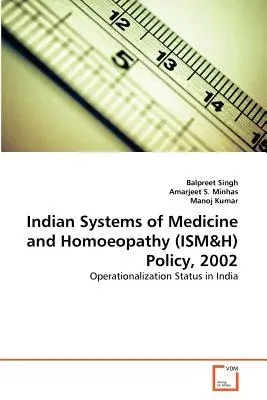Balpreet Singh
(Author)Indian Systems of Medicine and Homoeopathy (ISM&H) Policy, 2002Paperback, 15 June 2011

Qty
1
Turbo
Ships in 2 - 3 days
In Stock
Free Delivery
Cash on Delivery
15 Days
Free Returns
Secure Checkout
Print Length
268 pages
Language
English
Publisher
VDM Verlag
Date Published
15 Jun 2011
ISBN-10
3639364295
ISBN-13
9783639364293
Description
Product Details
Book Format:
Paperback
Country of Origin:
US
Date Published:
15 June 2011
Dimensions:
22.86 x
15.24 x
1.55 cm
ISBN-10:
3639364295
ISBN-13:
9783639364293
Language:
English
Location:
Saarbrucken
Pages:
268
Publisher:
Weight:
394.63 gm

